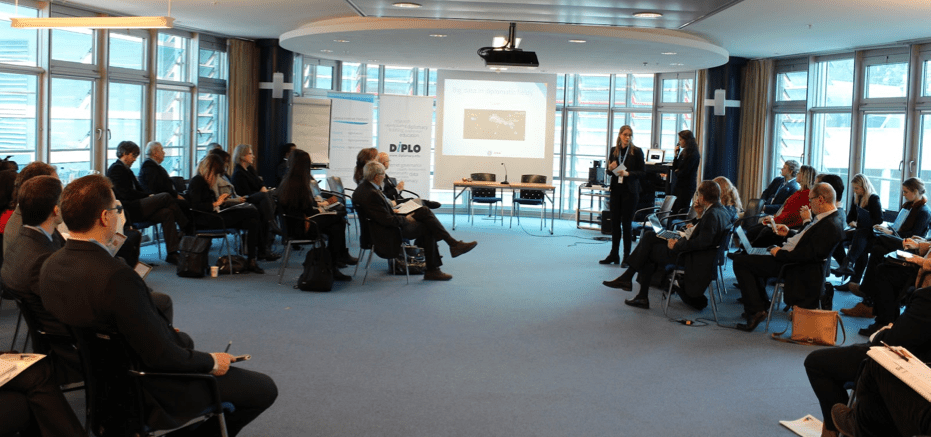
DiploFoundation publishes new report on big data and diplomacy
 Download the Press Release in PDF format
Download the Press Release in PDF format
Geneva, Switzerland, 8 February 2018: DiploFoundation has published a new report on Data Diplomacy: Updating Diplomacy to the Big Data Era, commissioned by the Ministry of Foreign Affairs of Finland.
The report maps the main opportunities of big data in different areas of diplomacy. It proposes ways for ministries of foreign affairs (MFAs) to capture its potential, and describes the key considerations that have to be taken into account for big data to flourish.
Data is often described as a critical resource of modern society, and the oil of the new economy. Vast amounts of data are generated every day through the use of digital devices. How can diplomats best tap into the potential of the big data era?
 The report provides a number of examples of how sources such as GPS-data, social media data, and satellite data can provide insights for diplomats when, for example, planning foreign policy, negotiating, designing communication strategies, and providing services for citizens through their consular departments. Yet, the report stresses that big data ‘is a tool, not a panacea’, and serves to support the work of diplomats, rather than substitute expert insight.
The report provides a number of examples of how sources such as GPS-data, social media data, and satellite data can provide insights for diplomats when, for example, planning foreign policy, negotiating, designing communication strategies, and providing services for citizens through their consular departments. Yet, the report stresses that big data ‘is a tool, not a panacea’, and serves to support the work of diplomats, rather than substitute expert insight.
The launch of the report, which was attended by about 70 participants from diplomatic representations, international organisations, and civil society, provided a chance to discuss the findings of the report further and to share the insights of various practitioners.
In her opening remarks, Ms Sini Paukkunen, Director of the Unit for Policy Planning and Research within the Ministry of Foreign Affairs of Finland, highlighted that algorithms and artificial intelligence are an integral part of today’s environment, and that it is ‘timely to consider how we may domesticate data and new sources of data’. Presenting the report, Dr Katharina Höne, co-author of the report, added that ‘diplomatic practice is essentially a social practice: when society changes, so does diplomacy’.
However, challenges remain in capturing the true potential of big data for diplomacy, not in the least because MFAs often lack the capacity to engage in big data analysis. Referring to the need for exchange, Ms Barbara Rosen Jacobson, co-author of the report, asked, ‘What does the diplomat need to know about data? And what does the scientist need to know about diplomacy?’
The report has opened up new avenues to be explored, such as the role of artificial intelligence in the future of diplomacy. Yet, Dr Jovan Kurbalija, Director of DiploFoundation, cautioned against blindly following hypes and called for a productive and realistic approach to new technologies that anchors them into the reality of diplomacy.
Download the report Data Diplomacy: Updating Diplomacy to the Big Data Era, or the Executive Summary, and learn more about the data diplomacy research project. For any questions, get in touch with us at data@diplomacy.edu

